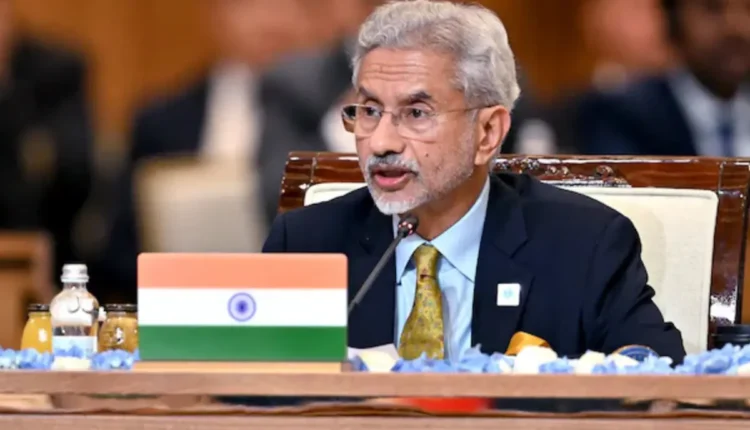S Jaishankar Asserts Bharat’s Sovereignty: “No Veto on India’s Choices”
'Don't Confuse India's Independence With Neutrality': S Jaishankar
External Affairs Minister S Jaishankar delivered a powerful message on Saturday, asserting that India will never allow external forces to veto its choices. Speaking virtually at an event in Mumbai, Mr. Jaishankar highlighted the nation’s unwavering commitment to its national interests and global well-being, emphasizing that independence must never be equated with neutrality.
“Bharat will do whatever is right in its national interest and for the global good without being intimidated to conform,” he said in his concise yet impactful ten-minute address. “Independence should never be confused with neutrality. Bharat can never permit others to have a veto on its choices.”
This statement underscores India’s assertive stance in global diplomacy, reflecting a vision of a self-reliant and confident nation ready to navigate a multipolar world.
Rediscovering Bharat: A Blend of Heritage and Progress
S Jaishankar highlighted a critical shift in the nation’s trajectory, where India is rediscovering its cultural and civilizational identity. For decades, progress and modernity were often portrayed as a rejection of traditional values and heritage. However, according to Mr. Jaishankar, the deepening of democracy has amplified authentic voices, allowing India to embrace its roots while pursuing progress.
“Perhaps, this came from an affinity for imported models, or perhaps it was a discomfort with its own practices. But now, as the deepening of democracy has thrown up more authentic voices, the country is rediscovering itself and finding its own persona,” he stated.
India, he said, is not merely a nation-state but a “civilization state.” This unique identity gives the country unparalleled opportunities to influence the global arena through its rich cultural and historical legacy.
India’s Push for UNSC Reforms
Jaishankar also reiterated India’s long-standing call for reforms in the United Nations Security Council (UNSC). With 15 members, the UNSC has five permanent members wielding veto power—China, France, Russia, the UK, and the US. India has consistently argued that the current structure is outdated and unrepresentative of the 21st-century geopolitical realities.
France, Russia, the UK, and the US have voiced strong support for India’s bid for a permanent seat, further strengthening its case for reform.
India’s advocacy for a seat reflects its commitment to representing the Global South and promoting a balanced global order.
Bharat’s Cultural Strength as a Global Pillar
The Minister stressed the importance of leveraging India’s cultural heritage to solidify its position in global diplomacy. “To exercise influence, it is essential that the younger generation is fully aware of the value and significance of our heritage,” he said.
Jaishankar urged Indians to take pride in their heritage, particularly at a time when the world is grappling with challenges like stressed lifestyles, climate crises, and unhealthy habits. By embracing “Bharatiyata,” or the essence of being Indian, the nation can set an example for others.
India at a Crucial Juncture
According to S Jaishankar, India stands at a pivotal point in its history. Over the last decade, the country has made remarkable strides in tackling age-old challenges like poverty, discrimination, and lack of opportunities. On the global stage, it has emerged as a powerful voice for the Global South, championing development and equity.
“India today is poised at a crucial juncture,” Jaishankar noted. “It has demonstrated the capabilities, confidence, and commitment to advance development across broad fronts. Yet, constraints and limitations still persist, requiring continued effort to overcome.”
The Minister also addressed skepticism from ideologies that undermine India’s achievements. However, he expressed optimism that the nation’s self-belief and determination would propel it to greater heights.
Also Read:Illegal Bangladeshi Immigrants: Delhi Police’s Operation Exposes 175 Cases

